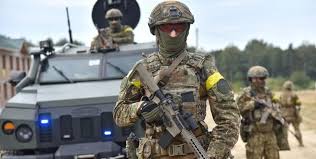Legal aspects of the use of weapons and control of armed conflicts
Introduction
The use of weapons and the control of armed conflict are important elements of international law and national legislation. These issues are regulated by numerous international treaties and conventions, as well as by domestic laws. This article discusses the main legal aspects related to the use of weapons and the control of armed conflicts.
International law
Geneva Conventions
The Geneva Conventions form the basis of international humanitarian law, which governs the rules of warfare and the protection of victims of armed conflict. There are four main Geneva Conventions:
- The First Geneva Convention: Protection of the Wounded and Sick in Armed Forces on the Battlefield.
- The Second Geneva Convention: Protection of Wounded, Sick and Shipwrecked Members of Armed Forces at Sea.
- The Third Geneva Convention: Treatment of Prisoners of War.
- The Fourth Geneva Convention: Protection of Civilian Persons in Time of War.
Additional Protocols to the Geneva Conventions
Three additional protocols were adopted to the Geneva Conventions, expanding their provisions:
- Protocol I: concerns the protection of victims of international armed conflicts.
- Protocol II: concerns the protection of victims of non-international armed conflicts.
- Protocol III: concerns the adoption of an additional distinctive mark (red crystal).
Convention on Prohibitions or Restrictions on the Use of Certain Conventional Weapons
This convention, also known as the Convention on Conventional Weapons (CCW), regulates the use of certain weapons that may cause excessive damage or have indiscriminate effects. The Convention includes several protocols that prohibit or restrict the use:
- Booby traps.
- Flammable weapons.
- Laser weapons that can cause blinding.
The Chemical Weapons Convention
The Chemical Weapons Convention (CWC) prohibits the development, production, stockpiling and use of chemical weapons and requires their destruction. The Organization for the Prohibition of Chemical Weapons (OPCW) monitors the implementation of this convention.
Convention on the Prohibition of the Use of Biological Weapons
The Biological Weapons Convention (BWC) prohibits the development, production and stockpiling of biological weapons. It is one of the key documents aimed at preventing the use of biological agents as weapons. You may be interested in the following articles: legal advice, legal advice, analysis of documents, legal analysis of the situation, written advice, verification of documents by a lawyer, lawyers documents, online legal advice, online lawyer, legal opinion, legal opinion of a lawyer, lawyer online.
National legislation
Ukrainian legislation
In Ukraine, the use of weapons and the legal regulation of armed conflicts is governed by a number of laws and regulations, including:
- The Constitution of Ukraine: sets out the basic principles of defense policy and the use of the armed forces.
- The Law of Ukraine "On National Security of Ukraine": defines the basics of defense policy and principles of national security.
- The Law of Ukraine "On the Armed Forces of Ukraine": regulates the activities of the Armed Forces of Ukraine, their tasks, structure and procedure for the use of weapons.
- Criminal Code of Ukraine: contains provisions on liability for misuse of weapons, war crimes and other offenses related to the use of weapons. National legislation in Ukraine is in line with international standards and allows for the control of the use of weapons, which contributes to the maintenance of international peace and security.
Control over armed conflicts International control over armed conflicts is carried out through various mechanisms, including:
Diplomatic negotiations: Governments conduct diplomatic negotiations and conclude international agreements to prevent armed conflicts and regulate military disputes.
International organizations: Organizations such as the United Nations (UN), the European Union (EU), and others work together to peacefully resolve conflicts and control the use of weapons.
International sanctions: international organizations and governments can impose sanctions against states or groups that violate international law or pursue aggressive policies;
International peacekeeping missions: International peacekeeping missions help to resolve armed conflicts and ensure peace and stability in affected regions.
Internal control mechanisms: governments exercise internal control over the use of weapons and the regulation of armed conflict through legal norms and institutions.
Conclusion.
The use of weapons and the control of armed conflicts are complex issues that require a comprehensive approach and joint efforts of the international community. International law, including the Geneva Conventions and other international treaties, establishes rules and principles for the conduct of war and the protection of victims of armed conflict. National legislation further regulates the use of weapons and the control of armed conflicts at the domestic level. It is important to ensure effective control of armed conflicts in order to maintain international peace and security;

































